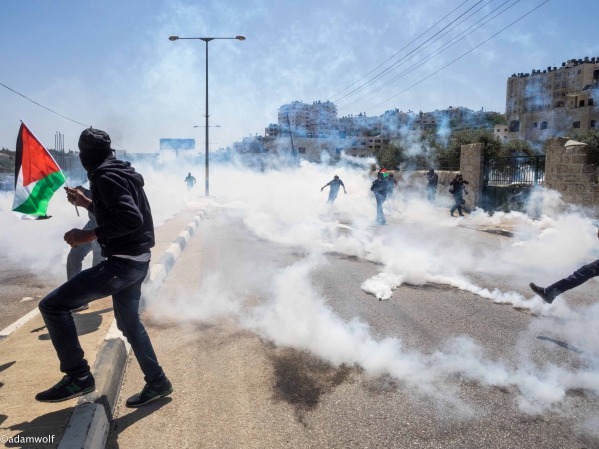Tag: Prisoner Release
-
Than you for the donations to free Ashraf Abu Rahmah!
Ashraf was arrested again on the 27th of October 2017 while giving a group of French solidarity activists a tour of the land that his village of Bil’in won back from the nearby Israeli colonial settlement of Modi’in Elite through their creative popular protests. He was accused of throwing stones at the occupation forces, an…
-
Eight activists injured by live ammunition in prisoner release protest outside Ofer prison
4th April 2014 | International Solidarity Movement | Ramallah, Occupied Palestine This afternoon approximately 500 Palestinian, international and Israeli demonstrators gathered close to Ofer Prison in Ramallah to protest against the refusal of the Israeli state to release the fourth group of Palestinian prisoners. As part of the current round of talks between Fatah (the…
-
Prisoner released leads to celebrations in Awarta
18th March 2014 | International Solidarity Movement, Nablus Team | Awarta, Occupied Palestine Yesterday in the village of Awarta, 26-year-old Rais Abdat was released from an Israeli prison. Three years ago, two youths from Awarta killed a settler from the nearby illegal settlement of Itemar, and for this act they both received five life sentences.…



